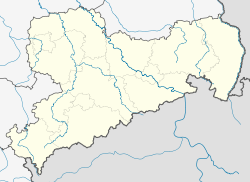
The Battle of Neuwied saw Lazare Hoche lead part of the French Army of Sambre-et-Meuse against Franz von Werneck's Austrian army. The French attack surprised their enemies and broke through their lines. Aside from 1,000 men killed and wounded, Austrian losses included at least 3,000 prisoners, 24 artillery pieces, 60 vehicles, and five colors. For their part, the French lost 2,000 men killed, wounded, and captured. The losses were in vain because Napoleon Bonaparte signed the Preliminaries of Leoben with Austria the same day. The armistice halted the fighting so that both sides could negotiate a peace. The action occurred during the War of the First Coalition, part of the French Revolutionary Wars.

Augustus III was King of Poland and Grand Duke of Lithuania from 1733 until 1763, as well as Elector of Saxony in the Holy Roman Empire where he was known as Frederick Augustus II.

The Battle of Hohenfriedberg or Hohenfriedeberg, now Dobromierz, also known as the Battle of Striegau, now Strzegom, was one of Frederick the Great's most admired victories. Frederick's Prussian army decisively defeated an Austrian army under Prince Charles Alexander of Lorraine on 4 June 1745 during the Second Silesian War.

Maurice of Anhalt-Dessau, was a German prince of the House of Ascania from the Anhalt-Dessau branch. He was also a Prussian soldier and Generalfeldmarschall.
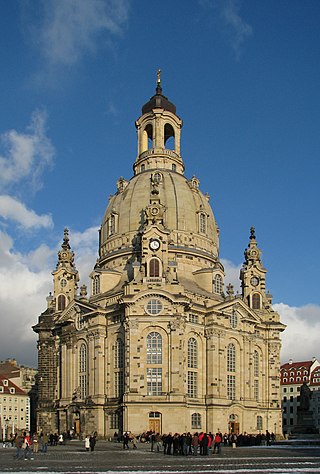
George Bähr was a German architect.

The Second Silesian War was a war between Prussia and Austria that lasted from 1744 to 1745 and confirmed Prussia's control of the region of Silesia. The war was fought mainly in Silesia, Bohemia, and Upper Saxony and formed one theatre of the wider War of the Austrian Succession. It was the second of three Silesian Wars fought between Frederick the Great's Prussia and Maria Theresa's Austria in the mid-18th century, all three of which ended in Prussian control of Silesia.

Wilsdruff is a town in the Sächsische Schweiz-Osterzgebirge, in Saxony, Germany, with 14,444 inhabitants (2020). It is situated 14 km west of Dresden centre. Kesselsdorf is one of its subdivisions.
Miklós Erdődy de Monyorókerék et Monoszló was a Croatian ban of Hungarian descent. He was a member of the Erdődy noble family and a Hungarian count.

The Battle of Kesselsdorf was fought on 15 December 1745, between the Kingdom of Prussia and the combined forces of the Archduchy of Austria and the Electorate of Saxony during the part of the War of the Austrian Succession known as the Second Silesian War. The Prussians were led by Leopold I, Prince of Anhalt-Dessau, while the Austrians and Saxons were led by Field Marshal Rutowsky. The Prussians were victorious over the Royal Saxon Army and the Imperial Army of the Holy Roman Emperor.

Bundesautobahn 17 is an autobahn in Saxony, south-eastern Germany. It links Dresden to the Czech border where the D8 continues to Prague. The road is a fairly new contribution to the German autobahn network. Construction began in 1998, with the first stretch opening in 2001 and the last in 2006.

The Treaty of Dresden was signed on 25 December 1745 at the Saxon capital of Dresden between Austria, Saxony and Prussia, ending the Second Silesian War.
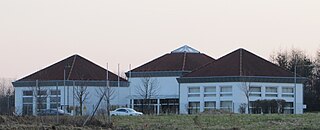
magnussoft Deutschland GmbH is a German computer game developer and publisher. The company is seated in Kesselsdorf, close to the Saxon capital of Dresden.
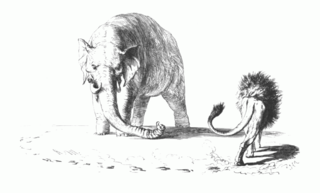
Austria and Prussia were the most powerful states in the Holy Roman Empire by the 18th and 19th centuries and had engaged in a struggle for supremacy in Germany. The rivalry was characterized by major territorial conflicts and economic, cultural and political aspects. Therefore, the rivalry was an important element of the so called German question in the 19th century.
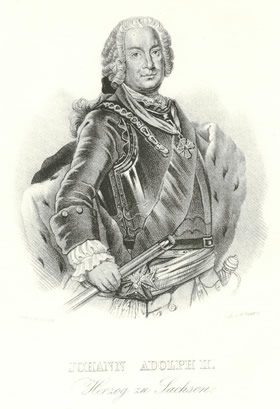
Johann Adolf II, Duke of Saxe-Weissenfels, was the last duke of Saxe-Weissenfels-Querfurt and a member of the House of Wettin. He was also a commander in the Saxon army.
Kotlarka is a village in the administrative district of Gmina Krośnice, within Milicz County, Lower Silesian Voivodeship, in south-western Poland. Prior to 1945 it was in Germany.
Janowiec is a village in the administrative district of Gmina Babimost, within Zielona Góra County, Lubusz Voivodeship, in western Poland.

This list shows the coats of arms of the municipalities in the district of Sächsische Schweiz-Osterzgebirge in the German federal state of Saxony.

Wilhelm Sebastian von Belling was a Prussian Hussar general under Frederick the Great.
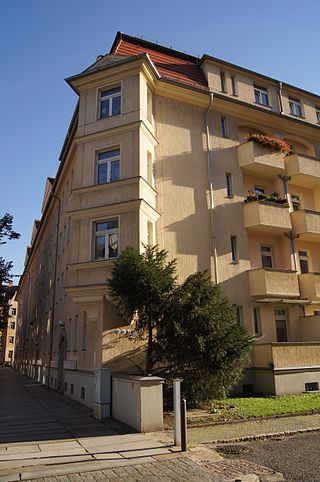
Löbtau is a quarter or Stadtteil in south-west Dresden, Germany. It is part of the Stadtbezirk Cotta. It borders the quarters of Friedrichstadt, Cotta, Gorbitz, Naußlitz, Dolzschen, Plauen and Südvorstadt.



